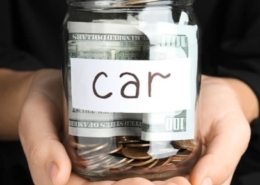How to Finance a Car When You’re Self-Employed
Unlock the best car financing strategies tailored for self-employed individuals to secure your next vehicle with ease.
Self-Employed Car Financing Advice
Getting approved for a car loan can be challenging, but it becomes even trickier when self-employed. The freedom of working for yourself is incredible—setting your own schedule, managing your own business, and reaping the rewards of your hard work.
However, that freedom comes with its own set of complications, especially when it comes to financing big purchases like a car. Traditional lenders tend to be cautious and often prioritize steady pay stubs from salaried workers as a sign of financial stability. Unfortunately, freelancers, gig workers, and small business owners rarely have that kind of consistent income documentation.
Key Takeaways
- Organize your financial documents: Have your tax returns, bank statements, and proof of income ready.
- Improve your credit score: A strong credit score helps ease lender concerns.
- Consider a larger down payment: More upfront lowers the lender’s risk and boosts approval chances.
Being self-employed doesn’t shut you out of the process. With the proper preparation, you can still get approved. By gathering the correct documents, improving your credit score, and considering alternative lenders, you can navigate the system and secure the car loan you need. Let’s explore how to make it happen.
Car Buying Tip: Finding a fair price for your new car can be tricky in today’s market, with many paying more than retail. But don’t stress! You can still score a great deal by requesting a free new car price quote to compare dealer offers in your area.
Table of Contents
- The challenge of auto financing for the self-employed
- How lenders view the self-employed
- Why tax returns are your best friend
- Keep those bank statements handy
- Your credit score matters
- Save for a larger down payment
- Consider alternative lenders
- Prepare to show proof of income
- Keep personal and business finances separate
- Use an accountant if possible
- Leasing as an option
- Don’t forget about car insurance
- What to do if you are denied
- Frequently asked questions
- Final thoughts
The Challenge of Car Financing for the Self-Employed
Self-employment comes with its fair share of perks, like setting your hours and answering only to yourself. But when securing a car loan, being self-employed isn’t all sunshine and rainbows.
Lenders might feel uneasy about giving you a loan without regular, predictable income from a full-time job. However, armed with the proper knowledge, you can set yourself up for success and cruise off the lot in no time.
Understanding How Lenders View the Self-Employed
Traditional lenders often base their decisions on a stable, predictable income to assess your loan repayment ability.
For self-employed individuals, this is where things can get tricky. Freelancers, independent contractors, and small business owners typically don’t have the kind of regular income that makes lenders feel comfortable. That doesn’t mean you’re out of luck; you just need to present a more detailed financial picture.
Why Tax Returns Are Your Best Friend
The tax return is one of the most critical documents for self-employed car buyers. Since you don’t have regular pay stubs, your tax returns from the past two to three years will serve as proof of income. If you’re thinking of writing off every little business expense, think again. While that may save you money at tax time, it can make your income look much lower than it is, which could hurt your chances of getting a loan.
Pro Tip: Show a consistent or increasing income on your tax returns. Lenders want stability, so it might raise some red flags if your earnings are all over the place.
Keep Those Bank Statements Handy
Besides tax returns, lenders will want to see your bank statements. Why? Because your bank records give them insight into your monthly cash flow. Your statements showing consistent deposits and a healthy balance will paint a positive picture of your financial stability. Make sure to have at least six months’ worth of statements ready for review.
Recommended Auto Loan Sites
 myAutoloan will shop for the best loan rates for you. You submit one free, no-obligation car loan quote through their secure website, and within seconds you'll receive up to 4 loan offers from their auto lending partners.
myAutoloan will shop for the best loan rates for you. You submit one free, no-obligation car loan quote through their secure website, and within seconds you'll receive up to 4 loan offers from their auto lending partners.
 Auto Credit Express was founded on June 1, 1999. If you have bad credit, no credit, or have been turned down for an auto loan because of a low credit rating in the past, Auto Credit Express can help.
Auto Credit Express was founded on June 1, 1999. If you have bad credit, no credit, or have been turned down for an auto loan because of a low credit rating in the past, Auto Credit Express can help.
Your Credit Score Still Matters—A Lot
Regardless of your employment status, your credit score plays a significant role in whether or not you get approved for a car loan. If you’re self-employed, the importance of a good credit score is even higher. Lenders may be skeptical about your fluctuating income, but a solid credit score can offset some of those concerns.
Tips to Boost Your Credit Score:
- Pay off outstanding debts: This will lower your credit utilization ratio, directly affecting your score.
- Avoid new credit applications: Each credit inquiry lowers your score slightly, and too many inquiries can make you look risky.
- Keep old accounts open: The length of your credit history matters, so keep those older accounts active.
RELATED: How credit scores affect car buying
Save for a Larger Down Payment
Sometimes, the best way to ease a lender’s mind is to offer a larger down payment. By putting more money down upfront, you lower the amount the lender needs to finance, which reduces their risk. Sometimes, a larger down payment can even lower your interest rate, saving you money in the long run.
Consider Alternative Lenders
If traditional lenders give you a hard time, don’t lose hope. Many alternative lenders specialize in loans for self-employed individuals or those with irregular income. These lenders are more flexible regarding your financial documentation and are more willing to work with non-traditional borrowers.
Types of Alternative Lenders:
- Credit Unions: Often more lenient and willing to work with individuals with fluctuating incomes.
- Online Lenders: Some online lenders specialize in providing loans to self-employed people and may have fewer strict income requirements.
- Buy Here, Pay Here Dealerships: These dealerships handle their own financing, but be cautious. They tend to have higher interest rates, and the terms may not always be favorable.
- How to Buy a New Car Below Factory Invoice Price – True dealer cost and the factory invoice price are not the same… dealer cost can be much lower.
- Figure a Fair Profit New Car Offer – How to calculate a fair profit new car offer.
- How to Buy a New Car Online – Not sure where to start? Use my step-by-step guide on how to buy a new car online.
Be Prepared to Show More Proof of Income
Traditional employees can hand over their W-2s or recent pay stubs, but self-employed individuals often have to jump through more hoops. You might need to provide a combination of tax returns, bank statements, invoices, and contracts to prove your income.
The more documentation you have, the better your chances of securing a loan.
Keep Your Business and Personal Finances Separate
One common mistake many self-employed individuals make is mixing their business and personal finances. This is bad for bookkeeping and can also confuse lenders. Having separate bank accounts for your personal and business expenses will make it easier to present your financial situation clearly when applying for a loan.
Use an Accountant If Possible
Having a professional help you organize your finances is always a good idea, especially if you’re self-employed. An accountant can ensure that your tax returns and financial documents are in top shape, and they can even advise potential lenders on how to make your financial profile look stronger.
Real-Time Bargain Hunting: Turn to Edmunds for instant access to the latest and greatest local deals, saving you time, money, and stress.
Leasing as an Option for the Self-Employed
If financing a car seems out of reach, leasing might be a viable alternative. Leasing typically requires less upfront money, and the monthly payments are often lower than if you were buying the car outright. However, leases have mileage restrictions and other rules, so read the fine print.
RELATED: Pros and cons of leasing a new car
Don’t Forget About Insurance
Being self-employed can sometimes mean paying more for health insurance; car insurance is no exception. Because your income might fluctuate, insurance companies may see you as a higher risk. It’s a good idea to shop around for the best rates and consider bundling your business and personal insurance if possible.
RELATED: Auto insurance buying tips that work
What to Do If You’re Denied
Getting denied a car loan can feel like a dead end, but don’t despair. If your application is rejected, ask the lender for specific reasons why. This information can help you fix any issues in the future.
Whether it’s improving your credit score, showing more proof of income, or saving up a larger down payment, you can always take steps to improve your odds the next time.
FAQs
How much down payment should I make if I’m self-employed?
While a standard down payment is around 20%, offering more—say, 30% or higher—can improve your chances of getting approved and may even reduce your interest rate.
Can I get a car loan if my credit score is below 600?
Yes, but you may face higher interest rates and stricter terms. Consider working with alternative lenders who may be more flexible.
How long should I be self-employed before applying for a car loan?
Most lenders want to see at least two years of self-employment history through tax returns and financial documents.
Is leasing a better option for the self-employed?
Leasing can be easier to qualify for and requires less money upfront, but it has limitations like mileage caps and strict terms. It’s worth considering if you need a car but can’t afford one outright.
What documents do I need for a self-employed car loan?
You’ll likely need at least two years of tax returns, recent bank statements, proof of income such as invoices or contracts, and possibly business financial statements.
Will I pay more for car insurance as a self-employed person?
Potentially, yes. Some insurers may see self-employed individuals as having a higher risk due to fluctuating income. Shop around and look for the best rates.
Conclusion: Auto Loan Tips for the Self-Employed
Getting a car loan when you’re self-employed doesn’t have to feel like pulling teeth. Yes, lenders might scrutinize your financial history a bit more. Still, with the proper preparation—like keeping good records, maintaining a solid credit score, and offering a larger down payment—you’ll be well on your way to driving off the lot in your new car.
So, grab those bank statements, brush up on your tax returns, and head to the dealership armed with knowledge and confidence!















